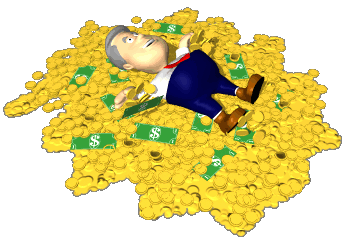
Gov.-elect Sam Brownback said Thursday that he opposes a quick revoke of this year's Kansas sales tax increase, an idea circulating among Republican legislators. The incoming GOP governor did leave room for him to back the idea in upcoming years. Brownback already has said he wants to amend the state's tax system to promote economic growth. But Brownback said the Legislature shouldn't revoke the sales tax increase next year because of the budget problems. He takes office and the Legislature assembles its annual session Jan. 10.
"We're short of capital for the state, and I don't think it's something that we should be doing at this time," Brownback told reporters after a Veterans Day ceremony in Topeka. "Our economic situation is not even." Rep. Owen Donohoe, a Republican from the Kansas City-area suburb of Shawnee, suggested in a recent letter to colleagues that GOP House members make the revoke a top priority. He acknowledged in an interview that he hadn't spoken with Brownback about it.
In his letter, Donohoe called on colleagues to commit to a conventional agenda, noting Republicans' big election gains. The GOP picked up 16 House seats, giving those 92 to Democrats' 33. "With the sweeping consent of the Kansas voters, we have a rare opportunity to effect substantial legislation that reflects fiscal and family values in the next session," he wrote.
House Speaker Mike O'Neal, a Hutchinson Republican who, like Donohoe, opposed the tax increase, said it's fair to debate revoking it. However, he also said legislators may want take a longer-term look at tax policy and consider plummeting individual and corporate income taxes to spur growth. Brownback said last week that he'd liked to cut individual income taxes.
"I think that all comes into the discuss that we certainly will have," O'Neal said. The sales tax rose from 5.3 percent to 6.3 percent in July. Outgoing Gov. Mark Parkinson, a Democrat, had pushed for the increase, saying it was necessary to keep away from crippling cuts in education funding and social services. The tax increase is expected to provide $314 million for state programs during the current fiscal year and more than $370 million during the fiscal year that begins in July 2011.
For the first three years, a small portion of the revenues will help support a 10-year, $8.2 billion transportation program that legislators approved this year, also at Parkinson's urging. The sales tax is due to drop to 5.7 percent in July 2013, with all funds raised by the last 0.4 percent going to transportation. O'Neal acknowledged that revoking the increase next year could "hamstring" the program.
"There's a lot of moving parts here," he said. Parkinson and other supporters of the sales tax increase dispute that it stabilized the state's finances. But the state also used federal stimulus funds to bolster aid to public schools and spending on social programs.
Kansas officials expect no additional incentive funds, leaving a $492 million gap in the next fiscal year's budget. "We've got to balance our budget," Brownback said, adding that his goal is to chapter out accounting moves the state has used in previous years to help paper over some problems.
But the governor-elect also refused to portray the sales tax increase as good. "When you raise taxes, you send a signal to the rest of the country (that) you're a high tax state," he said. "We've been a high tax state in this district, so the way to grow is not that way."
 Gold edged down in thin trade on Thursday after encouraging U.S. jobless claims data calmed some worries about economic growth, but concerns over tensions on the Korean peninsula could present some support.
Gold edged down in thin trade on Thursday after encouraging U.S. jobless claims data calmed some worries about economic growth, but concerns over tensions on the Korean peninsula could present some support.



















